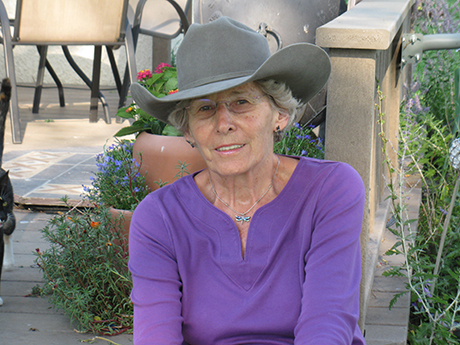Our discussion was about competition. Several in the group had felt pressure to excel as youngsters, and still do. Others of us recognized that we compete with ourselves. That’s not a bad thing if you’re simply trying to improve your skills, but it becomes hurtful if we push on past the point of exhaustion or injury.
Some people are naturally competitive; it seems to be in their genes. This describes one of my grandsons, who recently became the state champion bareback rider in High School Rodeo for the second year in a row. We are proud of him, of course, but just as proud of his siblings, who excel in other ways.
When they were toddlers, Spencer would climb on the back of the couch and bail off, saying, “Come on Deacon, this is fun!” His brother did it a time or two and then decided that game didn’t interest him. Both of the guys, and their sister, Medora, have a house full of awards in various kinds of competition, but each of them has followed their individual interests. We are equally proud of all our adult grandkids, who are respectful, good workers, good parents, and helpful in their communities.
I worry about Spencer getting hurt, but then remind myself he could have chosen to be a NASCAR driver. Watching him ride is to know that he’s exactly where he was meant to be and doing what he loves most. I probably worry just as much about Deacon and my husband as they head out to fish when the waves are rolling on big water, but both of them have that same look of total satisfaction when gathering their fishing tackle.
I’ve never been competitive. Truthfully, I’d as soon curl up with a book as join the game.
Playing along is fun but I feel bad if I’m partnered with someone who cares about winning, because I can’t make myself care.
The women in our group discussion explored the effect that childhood messages, have on our adult choices. All kids get asked what they want to be when they grow up. Sometimes the answers are laughed, at or discouraged, and those memories can have a lot to do with how we live our lives. Instead, we should ask youngsters what they enjoy doing most. That may, or may not, manifest in their adult lives, but life is too short to spend carrying out the expectations of others.
Our work is not who we are, and yet, when meeting someone for the first time we generally ask, “What do you do?” and categorize them in our minds as policeman, teacher, nurse, rancher, or whatever. We should get to know the person as an individual, their interests, hopes and concerns. And we need to teach our kids that their careers are only one component of who they are as people.
Full disclosure now. When I end our visits asking you to do your best, it doesn’t mean working your tail off to beat someone else’s efforts. Just be the best person you can, and do what you love most. That will automatically make you a winner.

